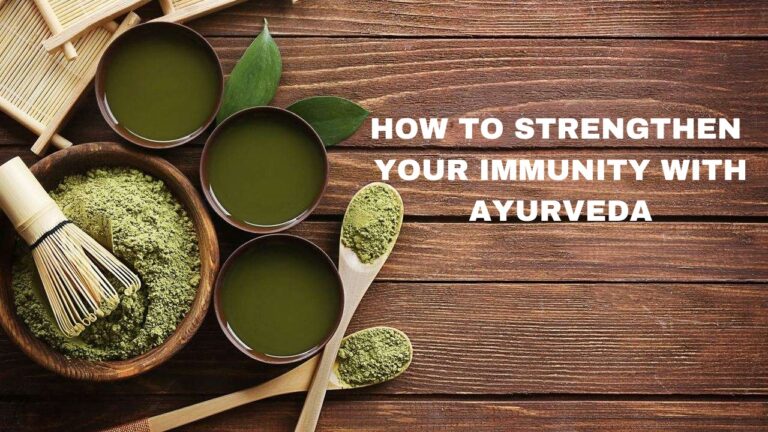Home » Ayush
AYUSH
AYUSH Ministry: Promoting Holistic Healthcare for All
The Ministry of AYUSH is dedicated to promoting the ancient and traditional systems of medicine, including Ayurveda, Yoga, Naturopathy, Unani, Siddha, and Homeopathy. Its primary goal is to ensure that these time-tested health practices are accessible to ordinary people through a comprehensive healthcare framework. The ministry plays a key role in the development, regulation, and standardization of these medical systems, ensuring their integration into the national healthcare infrastructure. In addition to healthcare delivery, the Ministry of AYUSH also focuses on education and research, fostering innovation while preserving the rich heritage of these traditional medical practices. Through these efforts, the ministry aims to enhance public health, promote wellness, and contribute to the nation's healthcare advancement.

Ayush Medical Practices
The foundation of AYUSH was established to manage and promote the traditional systems of medicine that have been practiced for centuries. AYUSH represents a holistic approach to healthcare, focusing on natural and alternative methods of treatment. It encompasses seven ancient systems of healing, each offering unique benefits for both physical and mental well-being. These systems include:
Ayurveda, one of the oldest medical systems in the world, has been practiced in the Indian subcontinent for nearly 3000 years. Rooted in the belief that health and wellness depend on a delicate balance between the mind, body, and spirit, Ayurveda emphasizes holistic treatments to prevent and cure diseases. The system is based on the idea of balancing the body’s energies, known as doshas—Vata, Pitta, and Kapha. These energies govern the physiological and psychological processes within the body, and Ayurveda uses a combination of herbal remedies, dietary changes, yoga, and meditation to keep them in harmony.
Ayurvedic treatments are highly individualized, considering a person’s unique physical constitution, lifestyle, and environment. It offers a range of practices from detoxification techniques like Panchakarma to rejuvenating therapies and natural medicines derived from herbs, minerals, and oils. Ayurveda also places great importance on prevention, advocating for a healthy lifestyle, proper diet, and regular exercise to maintain balance and promote longevity.
Today, Ayurveda continues to be widely practiced and respected as a complementary healthcare system, both in India and around the world. Its principles of natural healing and preventive care remain relevant in modern wellness practices. Read More
Yoga is a practice and discipline system that profoundly influences both physical and mental well-being. Unlike a medical system, it emphasizes holistic development of the mind, body, and spirit through a combination of postures (asanas), breathing techniques (pranayama), and meditation. Originating in ancient India, Yoga is believed to be over 5,000 years old and has since become a global phenomenon, celebrated for its ability to enhance flexibility, strength, balance, and mental clarity.
The primary goal of Yoga is to create harmony between the mind and body, leading to improved health, inner peace, and self-awareness. Practitioners benefit from increased physical fitness, reduced stress levels, improved emotional health, and a greater sense of mindfulness. Various styles of Yoga, such as Hatha, Vinyasa, Ashtanga, and Kundalini, offer different approaches depending on personal goals, whether it’s relaxation, strength building, or spiritual growth.
Today, Yoga is not only a popular practice for physical fitness but also a therapeutic tool used to manage conditions like anxiety, depression, chronic pain, and even heart disease. With its rich cultural heritage and adaptable techniques, Yoga continues to be a cornerstone of holistic health worldwide. Read More
Unani is one of the traditional systems of medicine that has maintained its relevance from ancient times to the modern day. Rooted in the ancient Greek philosophy of medicine, Unani revolves around the belief that four fundamental elements—fire, air, water, and earth—are integral to maintaining a person’s health. According to Unani principles, these elements combine in the human body to form four humors: blood, phlegm, yellow bile, and black bile. The balance of these humors determines an individual’s health and well-being.
Unani practitioners emphasize a holistic approach to treatment, which includes diet, lifestyle changes, natural remedies, and therapeutic techniques such as cupping, massage, and herbal medicine. The system aims to restore harmony within the body by balancing the humors, addressing both physical and mental well-being. Unani medicine is also preventive in nature, focusing on building immunity and enhancing the body’s natural healing process.
Throughout history, Unani has evolved by incorporating knowledge from other cultures and systems, yet it has retained its core philosophy. Today, it continues to be practiced widely in South Asia, the Middle East, and beyond, serving as a complementary and alternative approach to modern healthcare. Read More
Siddha is one of the oldest traditional systems of medicine, originating in India, particularly in the southern regions. It shares many principles with Ayurveda, though Siddha practitioners believe that their system predates Ayurveda by thousands of years. The word “Siddha” itself refers to the perfected souls or sages who, according to tradition, were the founders of this system.
Siddha medicine is deeply rooted in ancient Tamil culture and relies on the concept of balancing the three humors—Vatha (air), Pitha (fire), and Kapha (water)—which aligns with similar Ayurvedic principles. However, Siddha has its distinct theories and practices. The system emphasizes the use of natural substances, such as herbs, minerals, and metals, to promote healing. Practitioners also focus on diet, lifestyle, and spiritual practices, aiming for the holistic well-being of body, mind, and soul.
What makes Siddha unique is its strong emphasis on alchemy and the use of mineral-based treatments, which are believed to rejuvenate and extend life. The system also includes special therapies for chronic diseases, detoxification, and mental health. Even today, Siddha medicine plays a significant role in healthcare in South India, with dedicated medical institutions and research centers continuing the legacy of this ancient practice. Read More
Homeopathic medicines are prepared from a wide range of natural sources, including plants, minerals, and animal products. However, unlike traditional systems like Ayurveda and Siddha that focus primarily on herbal and natural remedies, homeopathy also incorporates some synthetic substances and chemicals in its remedies. These substances are carefully diluted and shaken (a process known as potentization), making the remedies extremely gentle but, according to proponents, highly effective.
While homeopathy is not as ancient as other traditional medical systems, it has gained global popularity and is widely used for treating a variety of conditions, from allergies and skin disorders to chronic illnesses. Its individualized approach, where treatments are tailored to each patient’s symptoms and constitution, continues to attract those seeking alternative healthcare options. Read More
Naturopathy is an age-old healing system that emphasizes the body’s innate ability to heal itself. Its foundations can be traced back to ancient practices, with significant development occurring in Europe during the 16th and 17th centuries, particularly in Germany. This holistic approach focuses on natural remedies and lifestyle changes to promote overall wellness and prevent disease.
The core philosophy of naturopathy is that health is best achieved by supporting the body’s natural processes. Practitioners believe that a healthy lifestyle—encompassing proper nutrition, physical activity, hydration, and mental well-being—can enhance the body’s self-healing capabilities. Naturopathy incorporates a variety of techniques, including herbal medicine, hydrotherapy, nutrition, acupuncture, and physical manipulation.
By addressing the underlying causes of illness rather than just treating symptoms, naturopathy aims to restore balance and promote optimal health. This integrative approach is increasingly recognized and utilized worldwide, appealing to those seeking natural alternatives to conventional medical treatments. Naturopathy continues to thrive today, providing individuals with tools to achieve and maintain wellness through natural means. Read More
Sowa-Rigpa, often referred to as traditional Tibetan medicine, is one of the oldest healing systems known to humanity, with roots deeply embedded in Tibetan culture. While precise historical records are scarce, this holistic approach to health is believed to have evolved over thousands of years, integrating insights from ancient Indian and Chinese medical practices.
At its core, Sowa-Rigpa emphasizes the balance of the body, mind, and spirit, viewing health as a harmonious state. It focuses on understanding the unique constitution of each individual and diagnosing ailments through a combination of pulse diagnosis, urine analysis, and observation. Treatment modalities include herbal remedies, dietary recommendations, acupuncture, and specialized therapeutic techniques such as moxibustion.
Practiced not only in Tibet but also in India, Nepal, China, and various neighboring regions, Sowa-Rigpa remains an integral part of healthcare for many communities. Its holistic philosophy, combined with a rich tradition of herbal medicine, continues to attract interest globally, particularly as more individuals seek natural and sustainable healthcare options. This ancient system offers valuable insights into maintaining health and well-being through its unique understanding of the interconnectedness of life.






